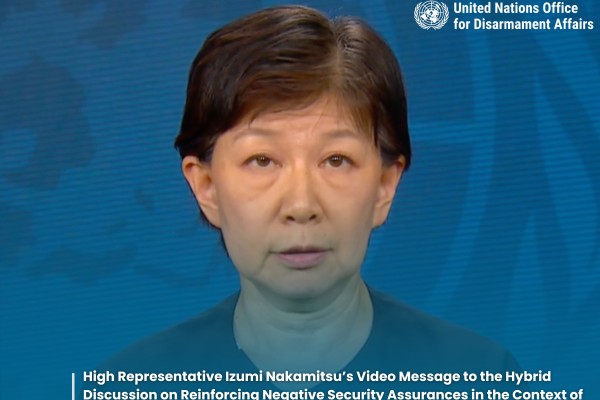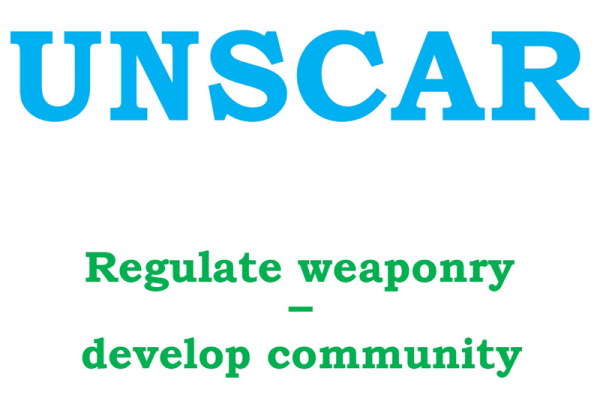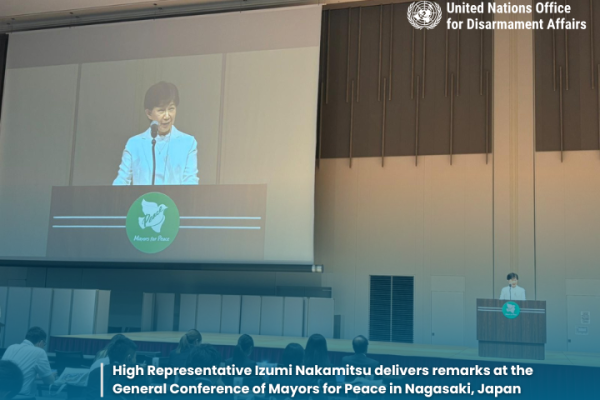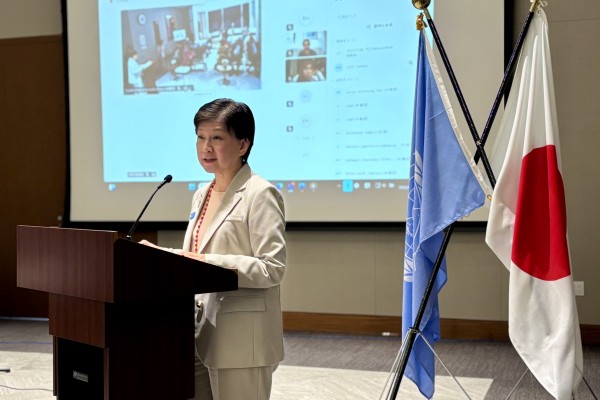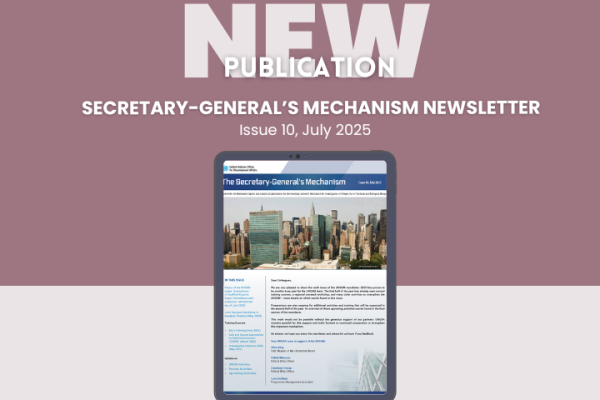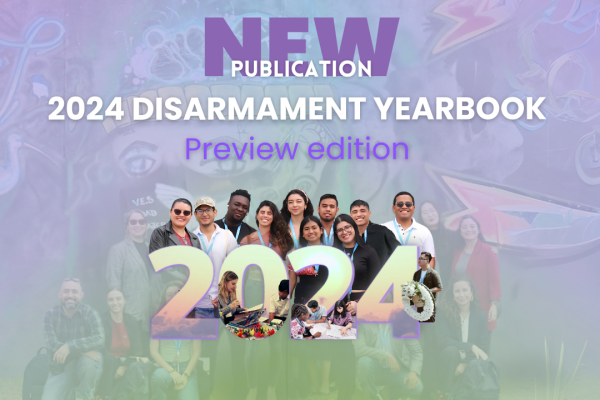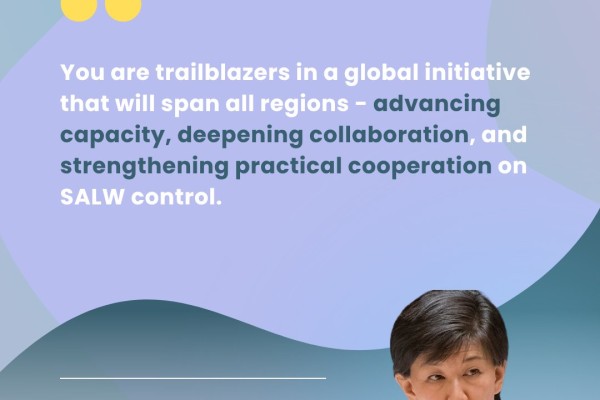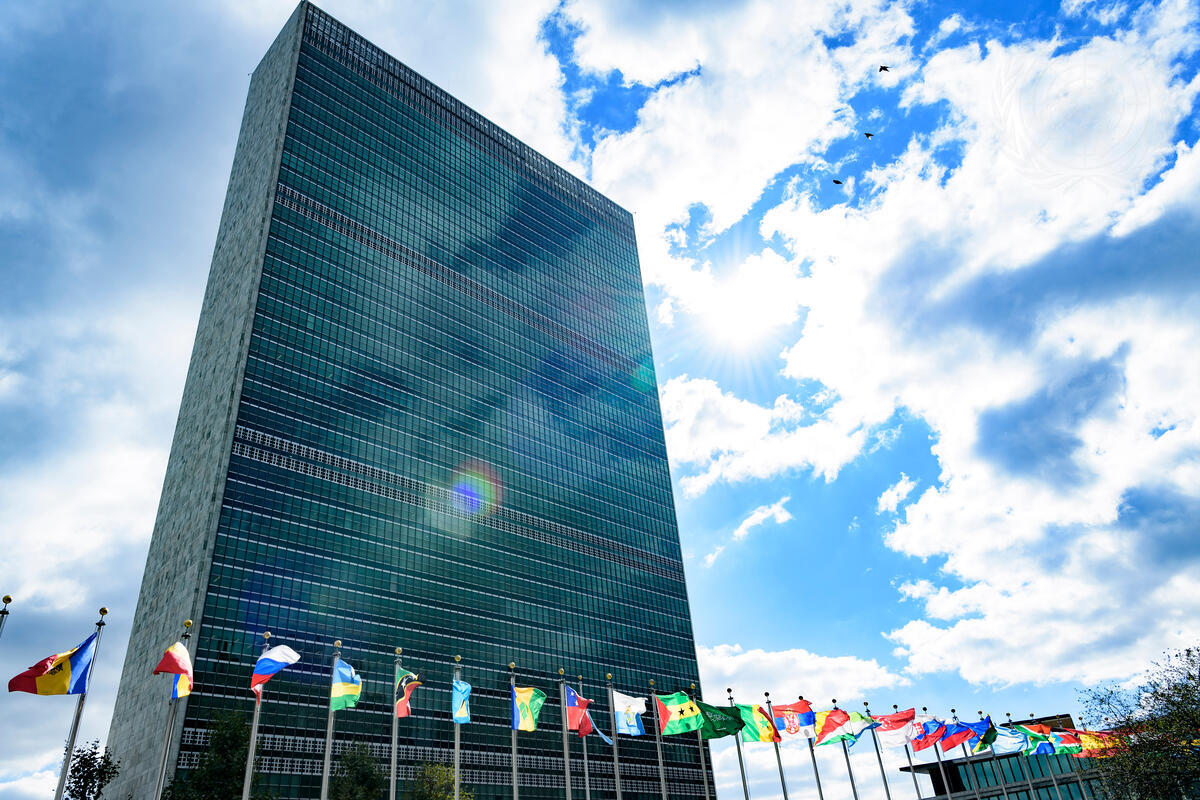
United Nations
Office for Disarmament
Affairs
Spotlights
See the top, latest stories and events coming from UNODA.
Updates
See the top, latest stories and events coming from UNODA.
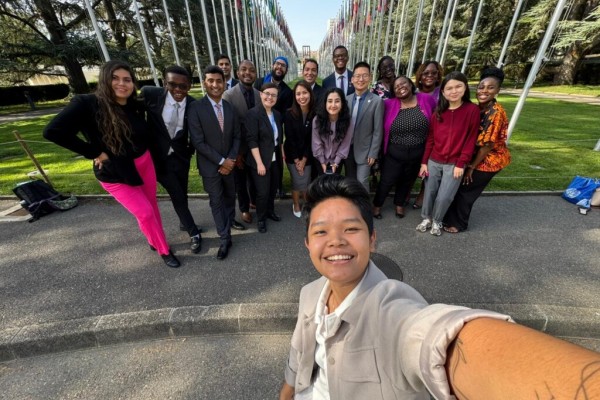
Youth for Biosecurity Fellows explore topics related to the Biological Weapons Convention in Official Study Visit
The deliberate inclusion and meaningful participation of young scientists is essential to strengthen frameworks that safeguard biosecurity matters. In this context, the UN Office for Disarmament Affairs’ Geneva Branch brought together 20 young scientists under the Youth for Biosecurity Initiative.
The call for applications to the third edition of the Youth for Biosecurity Fellowship received over 2,400 applications from 115 countries. Selected participants began their journeys with a series of five substantive webinars from 16 June to 23 July 2025. Each webinar explored a…
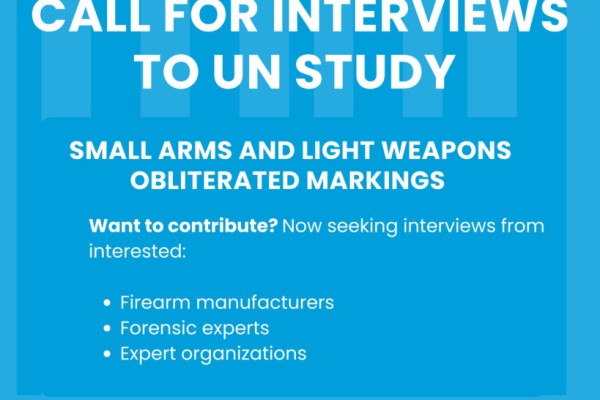
Call for Interviews: Study on Small Arms and Light Weapons Marking Recovery and Obliterated Markings of SALW
At its 79th session, the UN General Assembly requested the United Nations Office for Disarmament Affairs (UNODA) to conduct a study on obliterated markings and methods for marking recovery in the context of the International Tracing Instrument (ITI).
Obliterated markings refer to the deliberate erasing or alteration of identifying marks on small arms and light weapons (SALW), such as serial numbers or factory codes. It is a known problem that these markings are often removed by unauthorized users to hinder the tracing of illicit weapons. This practice poses a serious…
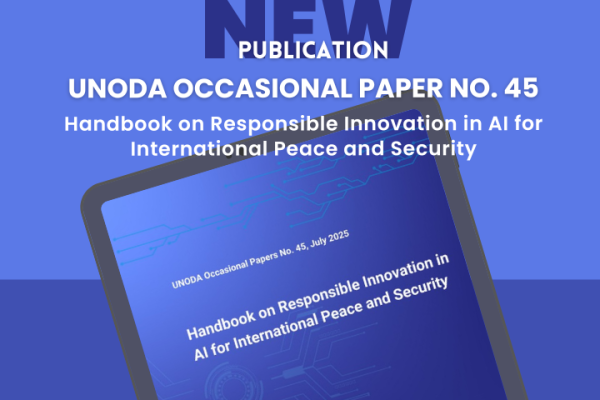
Supporting AI practitioners in addressing critical risks – launching the Handbook on Responsible Innovation in AI for International Peace and Security
Driven by factors like breakthroughs in machine learning, access to data, and hardware innovations, advances in AI are being employed in fields from drug discovery to supply chain management. However, the same advances also present real risks to international peace and security.
While some of this stems from AI’s potential for military purposes, even AI developments intended solely for civilian use can be repurposed for malicious or harmful ends, ranging from disinformation campaigns, and cyber-attacks to terrorist operations. Technology is not inherently neutral, and…
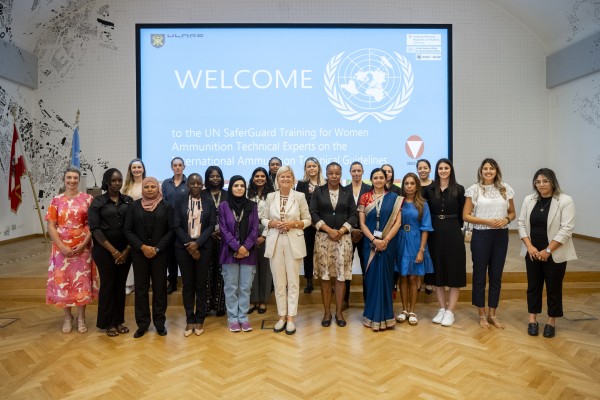
2025 UN SaferGuard Training for Women Ammunition Technical Experts
“You are part of a growing community of women trailblazers who are shaping the future of safe, secure and sustainable ammunition management,” said Rebecca Jovin, Chief of UNODA Vienna Office in her closing remarks. “We look forward to seeing the many ways in which you will continue to lead and inspire.”
With this powerful message, the United Nations Office for Disarmament Affairs (UNODA) concluded the third UN SaferGuard Training for Women Ammunition Technical Experts on the International Ammunition…
Events and Announcements
See the top events and announcements from UNODA.
Meetings and Events
Announcements
SG Statements
HR Statements
Press Releases
ODA at a glance
UNODA supports the development and implementation of practical disarmament measures after a conflict, such as disarming and demobilizing former combatants and helping them to reintegrate in civil society.
Established in January 1998
United Nations ODA was established in January 1998 as the Department for Disarmament Affairs which was part of the SG’s programme for reform in accordance with his report to the General Assembly (A/51/950).
Supports General and complete disarmament
The Office for Disarmament Affairs supports multilateral efforts aimed at achieving the ultimate goal of general and complete disarmament under strict and effective international control. The mandate for the programme is derived from the priorities established in relevant General Assembly resolutions and decisions in the field of disarmament, including the Final Document of the Tenth Special Session of the General Assembly, the first special session devoted to disarmament (resolution S-10/2).
Provides support in the area of disarmament
UNODA provides substantive and organizational support for norm-setting in the area of disarmament through the work of the General Assembly and its First Committee, the Disarmament Commission, the Conference on Disarmament and other bodies. It fosters disarmament measures through dialogue, transparency and confidence-building on military matters, and encourages regional disarmament efforts; these include the United Nations Register of Conventional Arms and regional forums.
Provides information to Member States
UNODA provides objective, impartial and up-to-date information on multilateral disarmament issues and activities to Member States, States parties to multilateral agreements, intergovernmental organizations and institutions, departments and agencies of the United Nations system, research and educational institutions, civil society, especially non-governmental organizations, the media and the general public.
Structure of ODA
The main parts of the Office for Disarmament Affairs, the Security Council, the Economic and Social Council, the Trusteeship Council, the International Court of Justice, and the UN Secretariat. All were established in 1945 when the UN was founded.
Weapons of Mass Destruction
Support to multilateral disarmament and non-proliferation efforts with respect to weapons of mass destruction (WMD).
Conventional Arms
Focusing disarmament and arms control efforts on all weapons not considered WMD, including small arms and light weapons (SALW).
Regional Disarmament
The enhancement of global disarmament and international peace and security through the support and promotion of regional disarmament efforts.
Emerging Challenges
Include UNODA’s work in science and technology, AI, autonomous weapons, ICT and outer space, among other areas.
Cross-cutting issues
Include UNODA’s work in education, youth, gender, counter-terrorism the environment, among other areas.
Watch and Learn
Video and audio from across the United Nations and our world-wide family of agencies, funds, and programmes.
What is disarmament?
Throughout history, countries have pursued disarmament to stop arms races, build trust, and protect people from harm. Disarmament has been central to the work of the United Nations since its founding, and it is critical for building a more secure and peaceful world. But what actually is disarmament? This video introduces audiences to the ideas and concepts behind disarmament and arms control.
How does disarmament and arms control work?
This video takes a look at the processes and mechanisms behind modern disarmament and arms control, and how we work together to realise disarmament goals.
How to engage
In this video we look at how individuals can engage with disarmament, and the importance of strengthening cooperation and coordination at all levels. We also look at the need to engage with more diverse groups to bring new perspectives, expertise and ideas to the table.
Disarmament in the 21st Century
This video introduces audiences to “Securing our Common Future”, the Secretary-General’s Agenda for Disarmament. The Agenda is based on four key pillars designed to bring the objectives of disarmament into the 21st century. Examining each of the pillars, this video looks at how we approach disarmament today.
Disarmament and the Sustainable Development Goals
Here we take a look at the vital role disarmament and arms control play in achieving the sustainable development goals.

